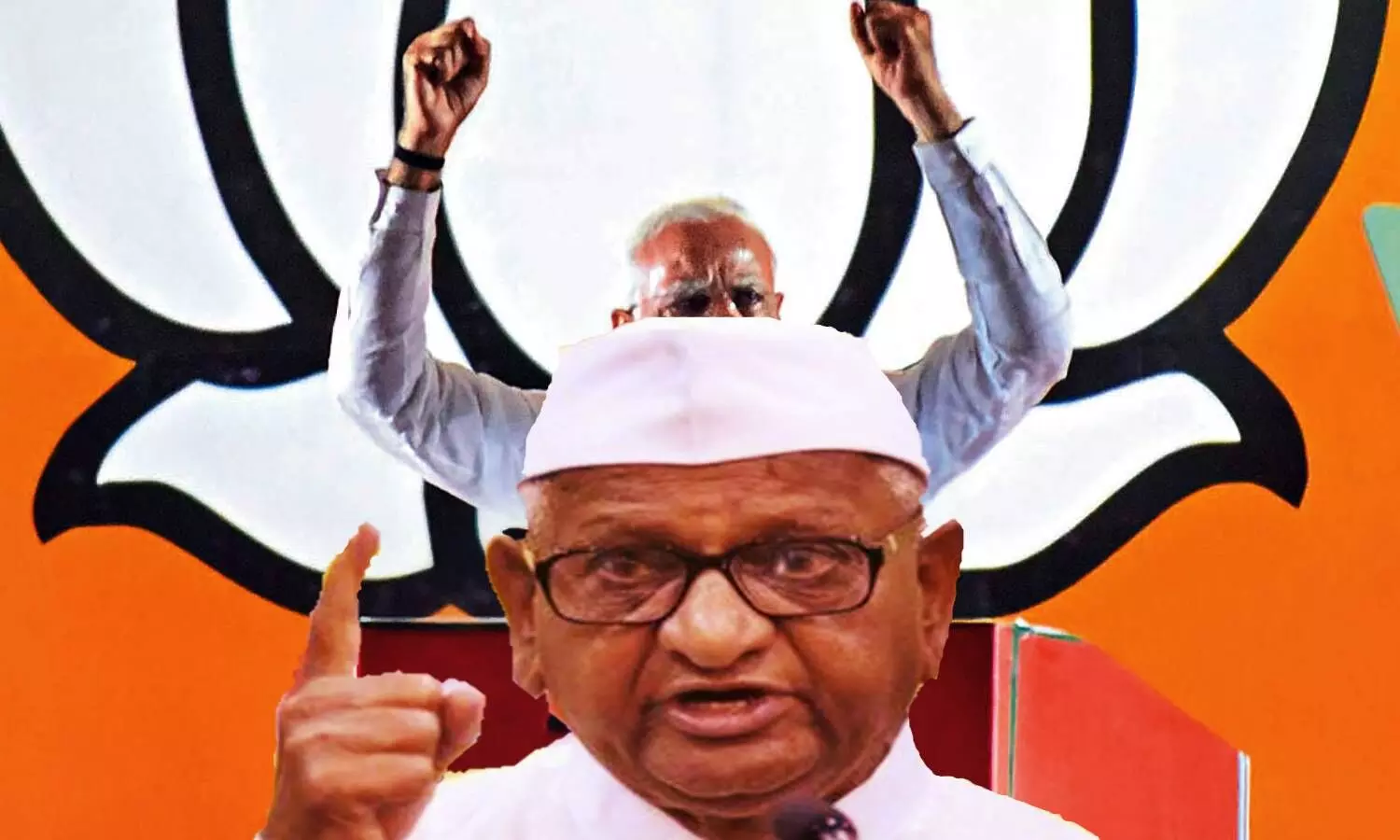
Anna Hazare, once a prominent figure in the fight against corruption in India, has recently found himself in the midst of controversy and criticism for his apparent silence on pressing issues and his perceived alignment with the ruling Bharatiya Janata Party (BJP).
Hazare rose to national prominence in 2011 with his hunger strike and movement demanding the implementation of the Jan Lokpal Bill, which aimed to establish an independent ombudsman to investigate corruption cases involving public officials. His crusade against corruption garnered widespread support and drew attention to the issue plaguing Indian politics.
Hazare’s activism was particularly directed against the Indian National Congress (INC) government at the time, accusing it of rampant corruption and advocating for systemic reforms. However, in recent years, as the political landscape shifted and new challenges emerged, Hazare’s voice seems to have faded into the background, raising questions about his commitment to his principles and the causes he once championed.
One of the most glaring criticisms leveled against Hazare is his conspicuous silence on various issues plaguing the nation under the current BJP government. Despite his fervent advocacy for accountability and transparency in governance, Hazare has remained notably quiet on instances of alleged corruption within the BJP ranks. The electoral bond controversy, wherein the ruling party reportedly received substantial anonymous donations, has failed to elicit any response from Hazare, raising doubts about his impartiality and independence from political influence.
Moreover, the relentless rise in fuel prices and the depreciation of the Indian Rupee against the US Dollar have exacerbated economic hardships for millions of Indians. The skewed allocation of public resources to corporate giants like Adani and Ambani at nominal prices has further fueled public discontent. Yet, Hazare’s silence on these matters has led many to question his moral authority and integrity as a social activist.
In a recent development that has stirred controversy, a video surfaced showing Hazare seemingly endorsing the arrest of Arvind Kejriwal, a prominent opposition leader and the Chief Minister of Delhi, by the Enforcement Directorate. The timing and nature of Hazare’s support for Kejriwal’s arrest, coupled with allegations of external influence from news agencies, have cast doubt on Hazare’s motives and raised suspicions of his alignment with the ruling party’s agenda.
Hazare’s transformation from a symbol of grassroots activism to a seemingly silent supporter of the establishment has disappointed many of his erstwhile supporters. His retreat from the public eye and his perceived acquiescence to political interests have undermined the credibility of the anti-corruption movement he once spearheaded.
